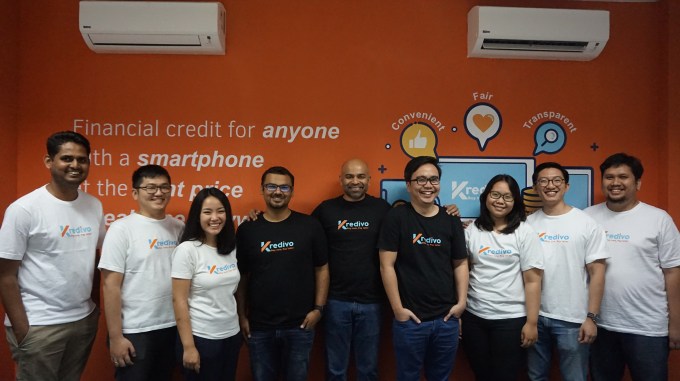The funding landscape in Southeast Asia is still wintery, but one fintech managed to land a major round. Kredivo Holdings, which offers credit services to underbanked consumers in Indonesia and Vietnam, has raised $270 million in what it says was an oversubscribed Series D.
The round was led by Japanese bank Mizuho Bank, a subsidiary of Mizuho Financial Group that contributed $125 million. It included participation from returning investors like Square Peg Capital, Jungle Ventures, Naver Financial Corporation, GMO Venture Partners and Openspace Ventures.
The company has now raised a total of about $400 million in equity, and has committed debt facilities of almost $1 billion to grow its loan book.
Kredivo CEO Akshay Garg declined to disclose Kredivo’s current valuation, but told TechCrunch that it has increased by 4x to 5x “in every valuation round historically.” He added that Kredivo now drives 3% to 4% of total GMV for its top e-commerce merchants in Indonesia, compared to 15% to 20% from credit cards.
The company nearly went public last year in a $2.5 billion SPAC deal, but nixed it, citing adverse market conditions. Garg said there are no plans to revive the SPAC and that Kredivo is “happy to stay private for the time being” and will evaluate public listing options later.
When asked how many active users Kredivo has, Garg said its approved user base is “now in the same range as the credit card population of Indonesia and we intend to exceed it over the next year or two.” According to the Bank of Indonesia, there are about 15 million to 16 million credit cards in circulation, but Kredivo’s surveys found most credit card holders have two, so the number of unique card holders is about half that number.

Kredivo’s founding team. Image Credtis: Kredivo
Formerly known as FinAccel, Kredivo is the parent company of Kredivo and Krom Bank Indonesia, its new neobank. The company’s products include online and offline buy now, pay later, personal loans, credit cards and banking services through Krom.
“Neobanking is very synergistic with our existing Kredivo business, and offers a very large business opportunity in its own right, given the scale of unbanked and underbanked users in Indonesia,” said Garg. Krom’s services will launch with deposits and transaction banking this year, pending final regulatory approvals.
Kredivo is also building an open loop credit card-like product, which includes Infinite Card, a virtual card partnership with Mastercard and offline card Flexicard, through direct partnerships with online and offline merchants.
Kredivo’s target demographic is underbanked consumers, or people who have access to bank accounts but little credit access because of poor credit bureau infrastructure and the reluctance of traditional banks to offer unsecured credit. Since Kredivo doesn’t rely solely on traditional credit bureaus, it gauges the creditworthiness of potential consumers through data sources like telcos, e-commerce accounts and bank accounts.
Another way Kredivo mitigates risk (and lowers the cost of its credit) is by targeting urban, white collar, employed customers, usually with bank accounts, compared to competitors that target higher-risk consumers and charge correspondingly higher interest rates.
Kredivo’s direct and indirect competitors include Akulaku’s BNPL and Bank Neo Commerce (the fintech also recently raised significant funding from a large Japanese bank), Advance.ai’s Atome BNPL service and Kredit Pintar cash loans and Sea Group’s Sea Money.
In a statement about the investment, Mizuho group executive officer deputy head of retail and business banking company, said, “Kredivo has a stellar track record in Southeast Asia, leveraging on its deep data partnerships to promote financial inclusion within Indonesia and Southeast Asia, while maintaining bank-like risk metrics and building a capital efficient business model.”

